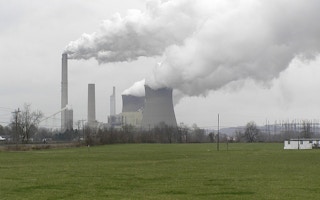Global fossil fuel subsidies, towering at US$7 trillion, have overshadowed climate finance flows of US$1.27 trillion in the last two years. Indonesia, the world’s top coal exporter, must urgently transition away from this major contributing factor to global warming. Yet the country heavily relies on fossil fuel subsidies, totalling US$12 billion in 2024, according to the Ministry of Energy and Natural Resources (ESDM). Indonesia has a dismal fossil fuel funding scorecard, graded C+ in 2020 by the International Institute for Sustainable Development (IISD), an independent thinktank analysing international policy on sustainable development governance. The IISD highlighted a 56 per cent increase in Indonesia’s support for fossil fuel consumption relative to annual amounts from 2014 to 2016.
There is a serious need for policy reforms in Indonesia on fuel subsidies, prioritising emissions reduction and renewable energy development. The urgency is underscored by subsidies’ detrimental effects distorting the market and going directly against Indonesia’s energy transition, where they hamper progress by fostering a competitive disadvantage for the development of renewable energy projects.
However, reforming fossil fuel subsidies in Indonesia poses a multifaceted challenge deeply embedded in the country’s political economy. This complexity stems from various dynamics, including the pressure of escalating food prices and the corresponding strain on low-income households. Additionally, there are political considerations, like politicians’ concern about their electability, entrenched subsidy traditions, and the formidable influence of fossil fuel lobbyists. Notably, Indonesia’s finance minister has highlighted the inequitable distribution of these subsidies, with the lion’s share of benefits flowing to affluent households while the most vulnerable segments of society receive a fraction of support.
Redirecting funds from fossil fuels to renewable energy and public transport, as recommended by IISD, holds immense potential for cutting Indonesia’s transportation emissions by 27 per cent, as highlighted in a 2024 report by World Resources Institute (WRI) Indonesia. This strategic shift, alongside reforms in subsidies for transport fuels and coal, and the implementation of an additional tax on these fuels, could yield substantial benefits. Such a tax would not only generate government revenue but also incorporate environmental and social costs linked to fossil fuel use.
Redirecting this revenue towards renewable energy investment and sustainable development initiatives, including social programmes, is a promising avenue. By adopting these measures, Indonesia could save Rp166 trillion (approximately US$11 billion), representing a significant portion — around 30 per cent — of the US$36 billion investment required to achieve its renewable energy targets by 2025.
Indonesia also faces formidable challenges in achieving its goal of a 10 per cent market penetration rate for electric vehicles (EV) by 2030, primarily due to prevailing subsidies favouring fossil fuel-powered vehicles. These subsidies, amounting to Rp502 trillion (US$33 billion) in 2022, with over half of this sum directed towards fuel subsidies, hinder progress towards the EV target and exacerbate emissions. The country’s energy transition has already failed to meet 2023 renewable energy targets. Renewables constituted only 13.1 per cent of Indonesia’s electricity mix as opposed to the targeted 17.9 per cent for 2023.
Moreover, Indonesia’s delay in passing the renewable energy bill, partly due to unresolved issues like stringent local content requirements (LCR), significantly impedes renewable project development. LCR, designed to boost domestic industrial growth, inadvertently tilts the playing field in favour of fossil fuels as certain projects benefit from existing infrastructure and technology, easing compliance. This bias creates market distortions and competitive disadvantages for renewables.
The recent announcement by president-elect Prabowo Subianto to redirect fossil fuel subsidies towards free meals for students, as he pledged during his electoral campaign, reflects a commendable commitment to prioritising student welfare. Eddy Soeparno, Prabowo’s campaign spokesperson, stated that the energy subsidy budget amounted to Rp350 trillion (US$ 21 billion). The free milk and lunch programme is estimated to cost Rp400 trillion (US$24 billion). Indonesia’s finance minister has clarified that a significant portion of the social protection budget for 2024 (nearly Rp330 trillion or about two-thirds) is earmarked for energy and non-energy subsidies. This, in theory, is adequate for Prabowo’s free meals programme.
Previous presidents Joko Widodo and Susilo Bambang Yudhoyono also grappled with challenges in phasing out fuel subsidies. While Widodo advocated removing fossil fuel subsidies during his 2014 campaign, global oil price surges prompted a retraction of plans for regular price adjustments and led to a resurgence of subsidies. The year he became president, Yudhoyono faced challenges during Indonesia’s transition to a net oil importer in 2004. Both presidents eventually devised alternative solutions, including social assistance programmes, to mitigate some of the impacts of global oil price volatility.
Under the next president, Indonesia must urgently revise its fossil fuel subsidy policies to align with emission reduction targets and social programmes, while considering budget constraints. There is growing momentum for subsidy reallocation in Indonesia, if the president-elect successfully implements his promised social programmes. Crafting a compelling message is vital to highlight the unsustainability of continued fuel subsidies and to emphasise the transformative potential of reallocating existing subsidy funds to initiatives supporting renewable energy without compromising social programmes.
This will be crucially important to ensure Indonesia’s path towards sustainably reallocating fossil subsidies under a Prabowo administration does not end.
Rahmat Riyadi is a PhD candidate researching Sustainability Transition at Universiteit Utrecht. His research interests include energy transitions for emerging economies in the global south.
This article was first published in Fulcrum, ISEAS – Yusof Ishak Institute’s blogsite.











